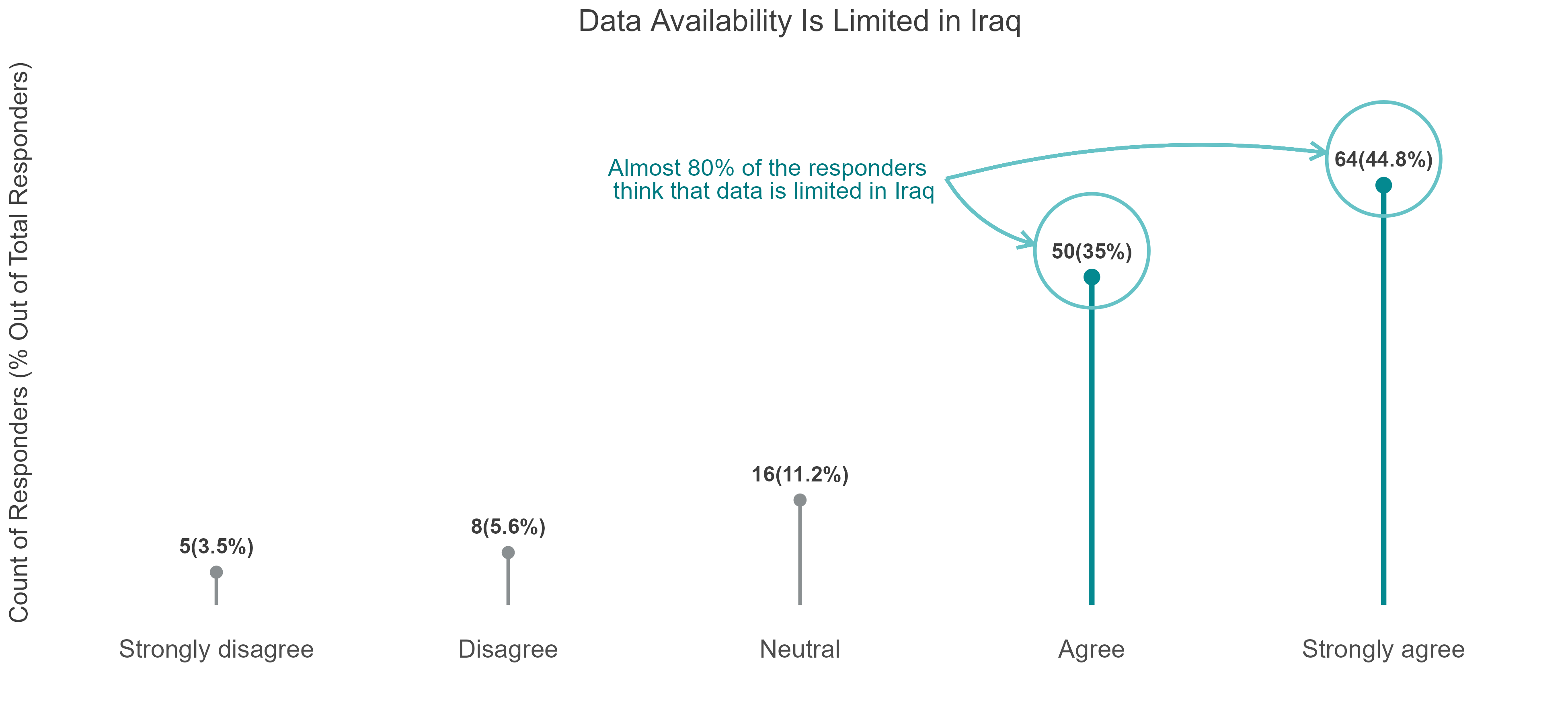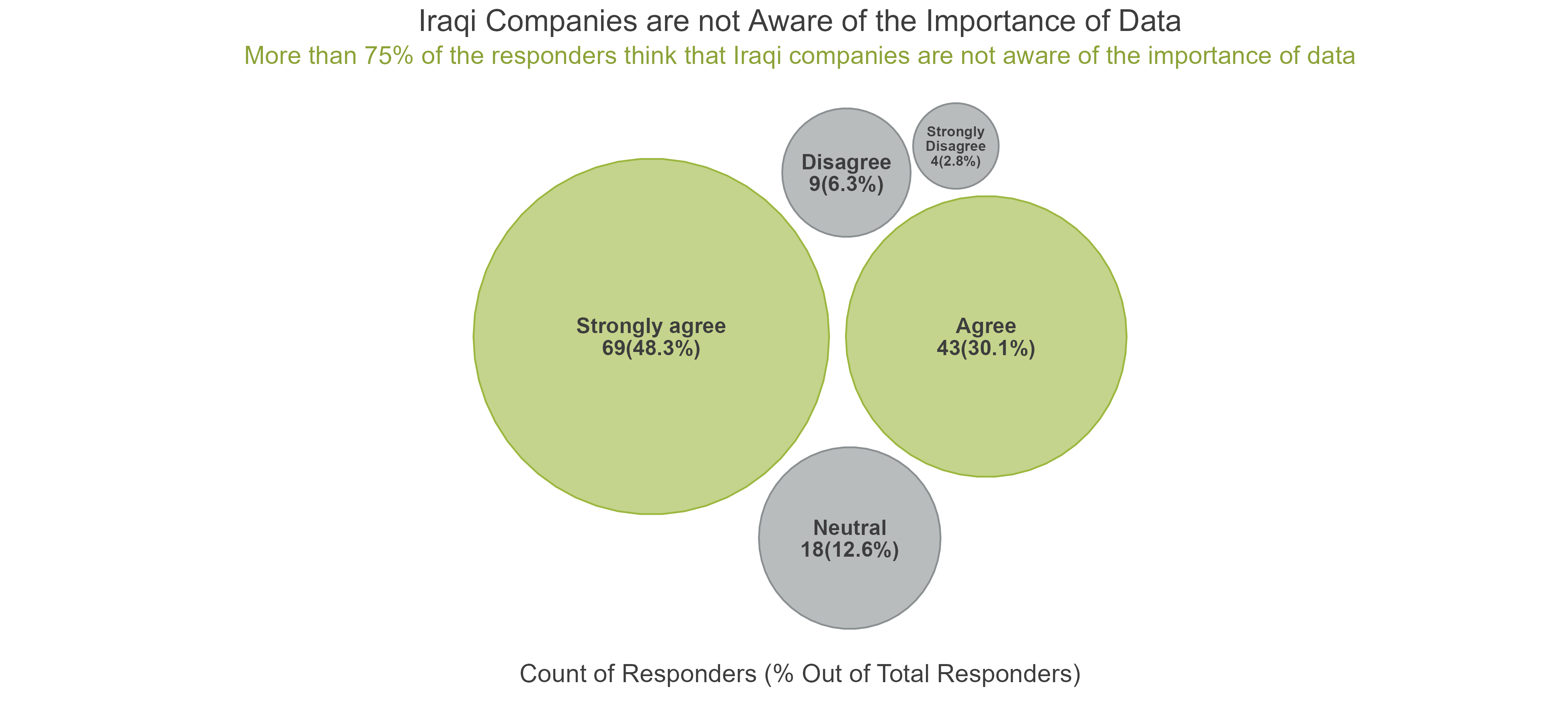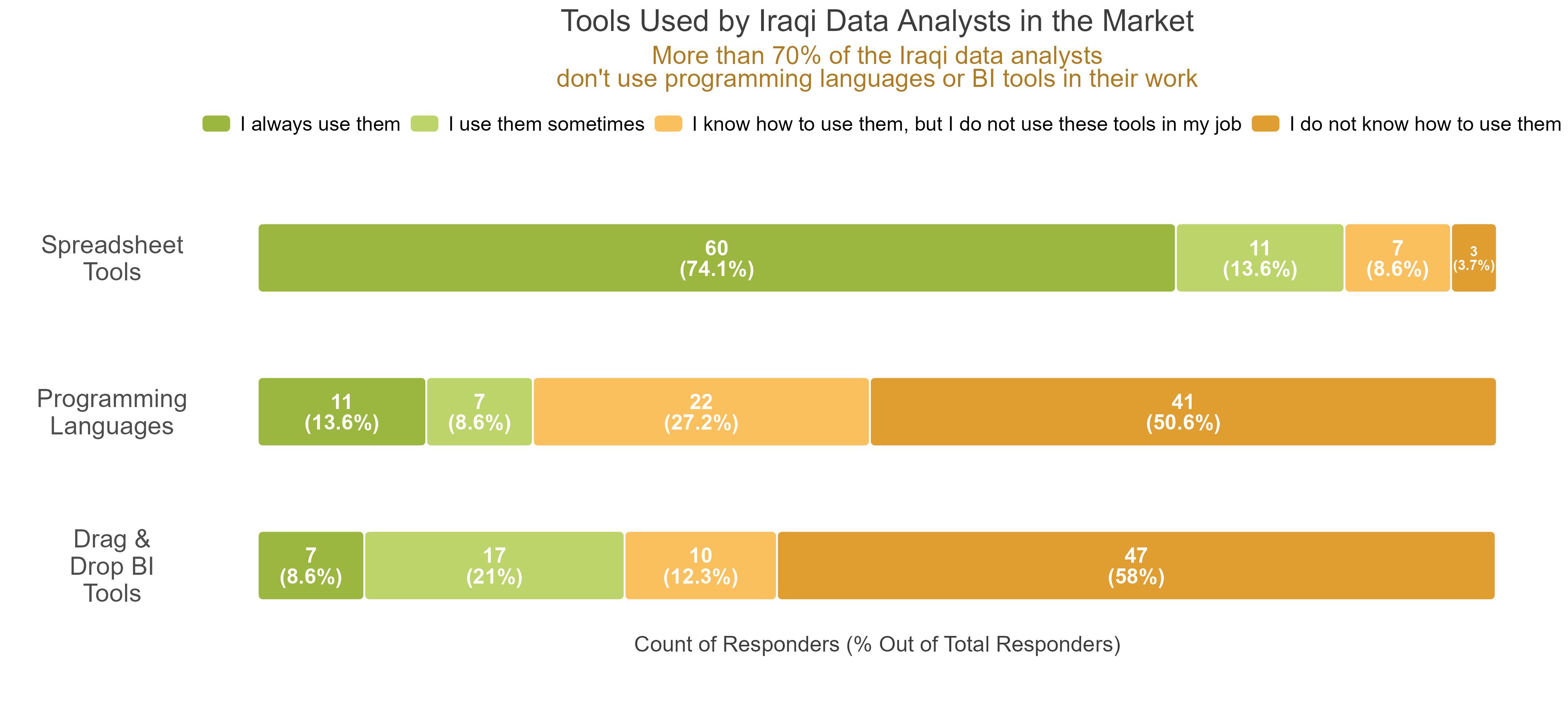This report can be cited as:
KAPITA. "Data Utilization in Iraq: An Analysis of the Current Scene Through the Lenses of Iraqi Data Analysts, Employees, and Experts.”. December 6, 2022. https://bit.ly/3urgG8f

Data Utilization in Iraq: An Analysis of the Current Scene Through the Lenses of Iraqi Data Analysts, Employees, and Experts.
Iraq is a focal point on the world map, with many parties interested in the data available, even seeking ones that are yet to be collected. Nonetheless, data utilization in Iraq is still in its infancy. The implementation of a data-centric shift in Iraqi company operations faces significant challenges. If Iraqi enterprises are to remain competitive in their various industries, they must overcome the obstacles posed by a lack of understanding of the significance of data, a shortfall of skilled data analysts, and a scarcity of data sources.
To gain insight into the current data utilization status within Iraq, KAPITA’s research team conducted a thorough analysis of the insights collected from key informant interviews and an online quantitative survey, to comprehend the perspectives of executive managers and employees around the utilization of data within Iraqi companies.
When it comes to data availability, there is a limited number of certain data sources in Iraq, the main governmental ones are the Central Statistical Organization (CSO) and the Central Bank of Iraq (CBI). Other sources of data include first-party customer data and social media.

Additionally, there is a shortage of qualified data analysts; more than 80% of respondents agreed or strongly agreed that the supply of qualified data analysts is restricted. One Informant believed that the demand for data analysts in Iraq was small to nonexistent because data-driven business in Iraq are minimal.
An important insight that was discovered is the lack of awareness surrounding data utilization and its benefits among iraqi companies. Approximately 78.4% of respondents fully agree that Iraqi companies are unaware of the importance of data. According to one of our informants, this lack of awareness may be due to the unprecedented nature of data utilization in Iraq. They report that few businesses are setting an example or spreading the word about the significance of data for business growth.

When asked about data analysis tools, spreadsheets are the most utilized tool, as 74% of respondents reported using them. Fewer individuals use programming and business intelligence tools. However, 27% of respondents indicated that they were familiar with programming tools but that their use was not requested in their current positions.

When respondents were asked how they acquired those skills, self-learning and workplaces were tied in first place for where respondents learned their data analysis skills proficiently, while formal education provided respondents with mostly little benefit.
With the rapid advancements in data analysis and utilization, we hope that this research endeavor will persuade Iraqi institutions and companies in adopting data utilization in their decision-making process with the most suitable tools, and eventually, stimulating their employees to learn and apply their knowledge to the best interest of everyone involved.
This report can be cited as:
KAPITA. "Data Utilization in Iraq: An Analysis of the Current Scene Through the Lenses of Iraqi Data Analysts, Employees, and Experts.”. December 6, 2022. https://bit.ly/3urgG8f